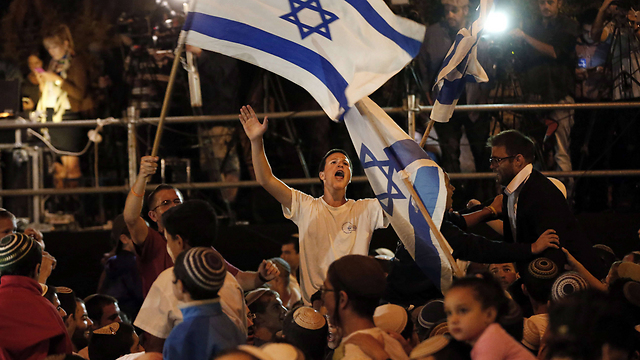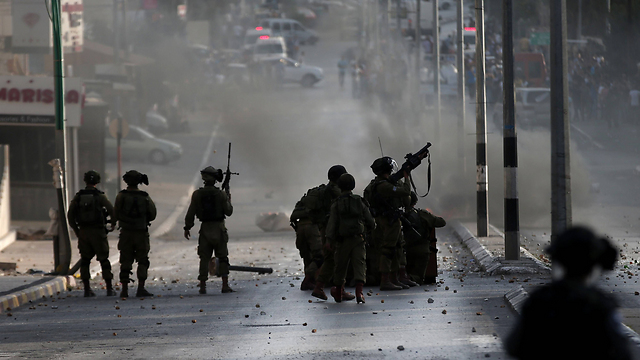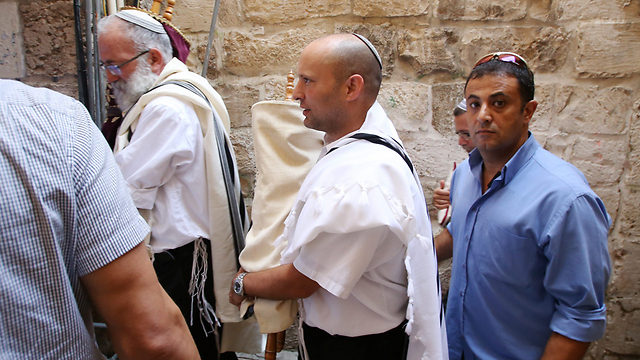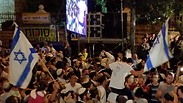
Thousands of conservative activists came together outside of Prime Minister Benjamin Netanyahu's residence in Jerusalem Monday night to protest the alleged incompetence of the current government in dealing with the current upswing in violent riots and attacks in the West Bank and East Jerusalem.
The protest was heavily attended by prominent figures in the religious and political communities including MKs from Netanyahu's own Likud party, highlighting the disunity within the Knesset regarding how best to deescalate the situation and move away from what some are already calling a third Intifada.
The show of harsh opposition to Netanyahu's policies came even as Netanyahu declared Monday that, "We are not prepared to give immunity to any rioter, inciter or terrorist anywhere; therefore, there are no restrictions on the action of our security forces.
"We will also lift restrictions regarding action against inciters," the prime minister continued. "We will act against the Islamic Movement which, together with Hamas and the Palestinian Authority, is the main source of incitement."
Netanyahu's words have at least partially been backed up by action, including 4 extra battalions of soldiers that have been deployed into the West Bank and thousands of police in East Jerusalem.
In fact, Sunday was the second time in as many weeks that Netanyahu declared new measures meant to deter attacks and rioters, but the moves have done little to quell complaints from the political right, placing heavy pressure on the prime minister.
Education Minister Naftali Bennett has led the public effort to pressure the prime minister to greater action over the past few weeks, even drawing criticism from Netanyahu when he laid out a list of "demands" after an attack in the West Bank killed two Israelis.
The list presented by Bennett was somewhat ambiguous, but strong in language, calling for the full support of soldiers in the field, the construction of new settlement neighborhoods and the arrest of Palestinians released in former political deals.
Netanyahu's office did not take kindly to the demands, calling Bennett's behavior childish and saying that he "still doesn't understand the significance of being a member of the government or the responsibility" that goes along with it.
Bennett then proceeded to lay out his plan at a cabinet meeting for dealing with the escalation in violence - generally following the demands previously made of Netanyahu.
But the prime minister has been under fire from outside the coalition as well as from within.
Opposition leader Isaac Herzog said Sunday that the government has no viable plan for "fighting a war against terror." Herzog said that while the perpetrators of violence should be punished, a political process would also be required to prevent a third Intifada.
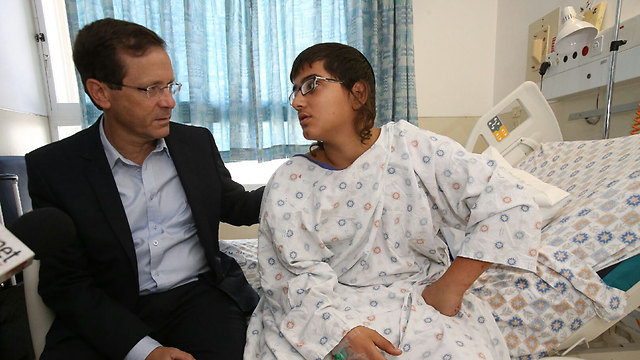
MK and former Foreign Minister Avigdor Lieberman joined the ranks of Netanyahu's critics and accused the prime minister of losing both "control and deterrence."
Netanyahu's miniscule majority in the Knesset, as well as attacks from both sides of the political spectrum, make Netanyahu's position precarious at best, raising the question of what a third Palestinian Intifada might mean for Israel's political apparatus.
Attila Somflavi and Rotem Elizera contributed to this report.















